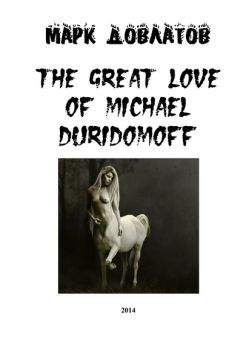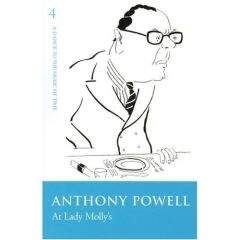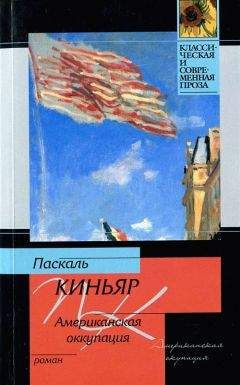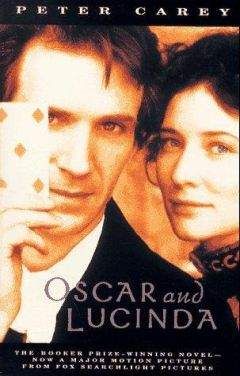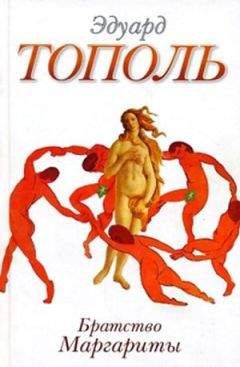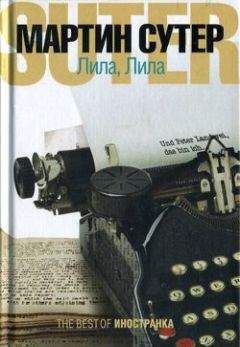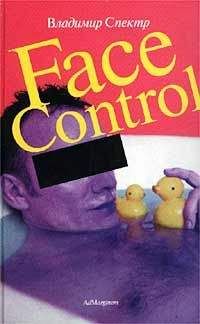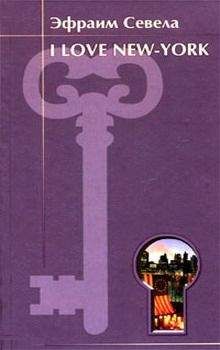Anthony Powell - A Buyers Market

Скачивание начинается... Если скачивание не началось автоматически, пожалуйста нажмите на эту ссылку.
Жалоба
Напишите нам, и мы в срочном порядке примем меры.
Описание книги "A Buyers Market"
Описание и краткое содержание "A Buyers Market" читать бесплатно онлайн.
Anthony Powell's universally acclaimed epic A Dance to the Music of Time offers a matchless panorama of twentieth-century London. Now, for the first time in decades, readers in the United States can read the books of Dance as they were originally published-as twelve individual novels-but with a twenty-first-century twist: they're available only as e-books. The second volume, A Buyer's Market (1952), finds young Nick Jenkins struggling to establish himself in London. Amid the fever of the 1920s, he attends formal dinners and wild parties; makes his first tentative forays into the worlds of art, culture, and bohemian life; and suffers his first disappointments in love. Old friends come and go, but the paths they once shared are rapidly diverging: Stringham is settling into a life of debauchery and drink, Templer is plunging into the world of business, and Widmerpool, though still a figure of out-of-place grotesquerie, remains unbowed, confident in his own importance and eventual success. A Buyer's Market is a striking portrait of the pleasures and anxieties of early adulthood, set against a backdrop of London life and culture at one of its most effervescent moments.
“Good gracious,” said Mr. Deacon. “Which one?”
“Boyhood of Cyrus.”
“Was that Aberavon’s? I thought he was dead these twenty years.”
“One of his daughters became Lady Walpole-Wilson. The picture is at her house in Eaton Square.”
“Well, I’m glad to know its whereabouts,” said Mr. Deacon. “I always make bold to consider it rather a successful achievement of mine, within the limits of the size of the canvas. It is unusual for people of that sort to have much taste in art. Aberavon was the exception. He was a man with vision. I expect his descendants have hung it in some quite incongruous place.”
I thought it wiser to supply no further details on the subject of the hanging of Boyhood of Cyrus. “Skyed” in the hall was a position even the most modest of painters could hardly regard as complimentary; though I was impressed by Mr. Deacon’s perspicacity in guessing this fate. It is, indeed, strange how often persons, living in other respects quite unobjectively, can suddenly become acutely objective about some specific concern of their own. However, no answer was required, because at that moment Widmerpool suddenly stepped in.
At first, after making some sort of an apology for his earlier clumsiness, he had stood staring at Mr. Deacon and the girl as if exhibits at a freak show — which it would hardly be going too far to say they somewhat resembled — but now he seemed disposed to dispute certain matters raised by Mr. Deacon’s remarks. I had felt, immediately after making this plunge of recognition, that Widmerpool, especially in his existing mood, would scarcely be inclined to relish this company. In fact, I could not understand why he did not at once make for home, leaving us in peace to wind up the reunion, a duty that my own eagerness, perhaps misplaced, had imposed mutually upon Mr. Deacon and myself. Now to my surprise Widmerpool suddenly said: “I think, if you meet her, you will find Lady Walpole-Wilson most appreciative of art. She was talking to me about the Academy only this evening — in connection with the question of the Haig statue — and her comments were illuminating.”
Mr. Deacon was delighted by this frank expression of opinion. There was, naturally, no reason why he should possess any knowledge of Widmerpool, whom I discovered in due course to be — in Mr. Deacon’s pre-determined view and own words—“a typical empty-headed young fellow with more money than is good for him” who was now preparing to tell an older man, and an artist, “what was what in the field of painting.” This was, indeed, the kind of situation in which Mr. Deacon had all his life taken pleasure, and such eminence as he had, in fact, achieved he owed largely to making a habit of speaking in an overbearing and sarcastic, sometimes almost insulting, manner to the race thus generically described as having “more money than was good for them.” He looked upon himself as the appointed scourge of all such persons, amongst whom he had immediately classed Widmerpool. The mistake was perhaps inevitable in the circumstances. In fairness to Mr. Deacon it should be added that these onslaughts were almost without exception accepted by the victims themselves — a fact borne out by Barnby — as in some eclectic manner complimentary, so that no harm was done; even good, if the sale of Mr. Deacon’s pictures could be so regarded.
“Should I ever have the honour of meeting her Ladyship,” said Mr. Deacon, with the suggestion of a flourish, “I shall much look forward to a discussion on the subject of that interesting institution, the Royal Academy. When in need of mirth, I should be lost without it. I expect Isbister, R.A., is one of her special favourites.”
“I have not heard her mention his name,” said Widmerpool, forgoing none of his seriousness. “But, for my own part, I was not displeased with Isbister’s portrait of Cardinal Whelan at Burlington House last year. I preferred it to — was it the wife of the Solicitor-General — that was so much praised?”
It showed a rather remarkable effort of will on the part of Widmerpool, whose interest in such matters was not profound, to have been able to quote these examples on the spur of the moment; and there is no knowing into what inextricable tangle this subject would have led them both, if their conversation had not been mercifully interrupted by the girl, who now said: “Are we going to stand here all night? My feet hurt.”
“But how shameful,” said Mr. Deacon, with all his earlier formality. “I have not introduced you yet. This is Miss Gypsy Jones. Perhaps you have already met. She goes about a great deal.”
I mentioned Widmerpool’s name in return, and Miss Jones nodded to us, without showing much sign of friendliness. Her face was pale, and she possessed an almost absurdly impudent expression, in part natural outcome of her cast of features, but also, as almost immediately became apparent, in an even greater degree product of her temperament. She looked like a thoroughly ill-conditioned errand-boy. Her forehead had acquired a smudge of coal-dust or lamp-black, darker and denser than, though otherwise comparable to, the smudge on Tompsitt’s shirt-front. It seemed to have been put there deliberately to offset her crimson mouth. Like Mr. Deacon, she too clutched a pile of papers under her arm, somehow suggesting in doing so the appearance of one of those insects who carry burdens as large, or even larger, than their own puny frame.
“You must wonder why we are on our way home at this late hour,” said Mr. Deacon. “We have been attempting in our poor way to aid the cause of disarmament at Victoria Station.”
Mr. Deacon’s purpose had not, in fact, occurred to me — it is later in life that one begins to wonder about other people’s activities — nor was it immediately made clear by Gypsy Jones extracting a kind of broadsheet from the sheaf under her arm, and holding it towards Widmerpool.
“Penny, War Never Pays!” she said.
Widmerpool, almost counterfeiting the secretive gesture of Lady Walpole-Wilson pressing money on Archie Gilbert in the taxi, fumbled in his trouser pocket, and in due course passed across a coin to her. In return she gave him the sheet, which, folding it without examination, he transferred to an inner pocket on his hip or in his tails. Scarcely knowing how to comment on the dealings in which Mr. Deacon and his companion were engaged. I inquired whether night-time was the best season to dispose of this publication.
“There is the depot,” said Mr. Deacon. “And then some of the late trains from the Continent. It’s not too bad a pitch, you know.”
“And now you are going home?”
“We decided to have a cup of coffee at the stall by Hyde Park Corner,” said Mr. Deacon, adding with what could only be described as a deep giggle: “I felt I could venture there chaperoned by Gypsy. Coffee can be very grateful at this hour. Why not join us in a cup?”
While he was speaking a taxi cruised near the kerb on the far side of the road. Widmerpool was still staring rather wildly at Gypsy Jones, apparently regarding her much as a doctor, suspecting a malignant growth, might examine a diseased organism under the microscope; although I found later than any such diagnosis of his attitude was far from the true one. Thinking that physical removal might put him out of his supposed misery, I asked if he wanted to hail the passing cab. He glanced uncertainly across the street. For a second he seemed seriously to contemplate the taxi; and then, finally, to come to a decision important to himself.
“I’ll join you in some coffee, if I may,” he said. “On thinking things over, coffee is just what I need myself.”
This resolution was unexpected, to say the least. However, if he wanted to prolong the night in such company, I felt that determination to be his own affair. So far as I was myself concerned, I was not unwilling to discover more of someone like Mr. Deacon who had loomed as a mysterious figure in my mind in the manner of all persons discussed by grown-ups in the presence of a child.
We set off up the hill together, four abreast: Widmerpool and Gypsy Jones on the flanks. Across the road the coffee-stall came into sight, a spot of light round which the scarlet tunics and white equipment of one or two Guardsmen still flickered like the bright wings of moths attracted from nocturnal shadows by a flame. From the park rose the heavy scent of London on a summer night. Here, too, bands could be heard distantly throbbing. We crossed the road at the island and joined a knot of people round the stall, at the side of which, as if killing time while he waited for a friend late in arrival, an elderly person in a dinner-jacket was very slowly practising the Charleston, swaying his weight from one side of his patent leather shoes to the other, while he kept the tips of his fingers delicately in his coat pockets. Mr. Deacon glanced at him with disapproval, but acknowledged, though without warmth, the smirk proffered by a young man in a bright green suit, the uncomfortable colour of which was emphasised by auburn hair, erratically dyed. This was perhaps not a spot one might have chosen to soothe Widmerpool after his unfortunate experience with Barbara and the sugar. All the same, at the far end of the stall’s little counter, he seemed already to have found something to discuss with Gypsy Jones — aspects of the question of the Haig statue, possibly, or the merits of Isbister’s portrait-painting — and both of them seemed fairly happy. Mr. Deacon began to explain to me how contemporary Paris had become “altogether too rackety” for his taste.
“The Left Bank was all right when I met you in the Louvre with your family,” he said. “Wasn’t the Peace Conference in progress then? I didn’t take much interest in such things in those days. Now I know better. The truth is one gets too intimate with too many people if one stays in Montparnasse too long. I have come back to England for a little quiet. Besides, the French can be very interfering in their own particular way.”
Purveying War Never Pays! at midnight in the company of Gypsy Jones seemed, on the face of it, a capricious manner of seeking tranquillity; but — as I knew nothing of the life abandoned by Mr. Deacon to which such an undertaking was alternative — the extent of its potentially less tempting contrasts was impossible to gauge. Regarded from a conventional standpoint, Mr. Deacon gave the impression of having gone down-hill since the days when he had been accustomed to visit my parents, to whom he made little or no reference beyond expression of pious hopes that both of them enjoyed good health. It appeared that he was himself now running a curiosity-shop in the neighbourhood of Charlotte Street. He pressed me to “look him up” there at the earliest opportunity, writing the address on the back of an envelope. In spite of his air of being set apart from worldly things, Mr. Deacon discoursed with what at least sounded like a good deal of practical common sense regarding the antique business, hours spent in the shop, time given to buying, closing arrangements, and such material points. I did not know what his financial position might be, but the shop was evidently providing, for the time being, an adequate livelihood.
“There are still a few people who are prepared to pay for nice things,” he remarked.
When given coffee, he had handed back his cup, after examination, in objection to the alleged existence on the rim of the china of cracks and chips” in which poison might collect.”
“I am always worried as to whether or not the crockery is properly washed up in places like this,” he said.
Reflectively, he turned in his hand the cup that had replaced the earlier one, and continued to digress on the general inadequacy of sanitary precautions in shops and restaurants.
“It’s just as bad in London as in Paris cafés — worse in some ways,” he said.
He had just returned the second cup as equally unsatisfactory, when someone at my elbow asked: “Can one get matches here?” I was standing half-turned away from the counter, listening to Mr. Deacon, and did not see this new arrival. For some reason the voice made me glance towards Widmerpool; not because its tone bore any resemblance to his own thick utterance, but because the words suggested, oddly enough, Widmerpool’s almost perpetual presence as an unvaried component of everyday life rather than as an unexpected element of an evening like this one. A moment later someone touched my arm, and the same voice said: “Where are you off to, may I ask, in all those fine clothes?” A tall, pale young man, also in evening dress, though without a hat, was standing beside me.
At first sight Stringham looked just the same; indeed, the fact that on the former occasion, as now, he had been wearing a white tie somehow conveyed the illusion that he had been in a tail-coat for all the years since we had last met. He looked tired, perhaps rather irritable, though evidently pleased to fall in like this with someone known to him. I was conscious of that peculiar feeling of restraint in meeting someone, of whom I had once seen so much, now dropped altogether from everyday life: an extension — and refinement, perhaps — of the sensation no doubt mutually experienced between my parents and Mr. Deacon on that day in the Louvre: more acute, because I had been far more closely associated with Stringham than ever they with Mr. Deacon. The presence of Widmerpool at the stall added a touch of fantasy to Stringham’s appearance at that spot; for it was as if Widmerpool’s own antics had now called his mimic into being as inexorable accessory to any real existence to which Widmerpool himself might aspire. I introduced Mr. Deacon and Gypsy Jones.
“Why, hallo, Stringham,” said Widmerpool, putting down his coffee-cup with a clatter and puffing out his cheeks in a great demonstration of heartiness. “We haven’t met since we were at Le Bas’s.”
He thought, no doubt — if he thought of the matter at all — that Stringham and I were friends who continued to see each other often, inevitably unaware that this was, in fact, our first meeting for so long. Stringham, on his side, clearly supposed that all four of us — Widmerpool, Mr. Deacon, Gypsy Jones, and myself — had been spending an evening together; though it was obvious that he could determine no easy explanation for finding me in Widmerpool’s company, and judged our companionship immensely funny. He laughed a lot when I explained that Widmerpool and I had been to the Huntercombes’ dance.
“Well, well,” he said. “It’s a long time since I went to a dance. How my poor mother used to hate them when my sister was first issued to an ungrateful public. Was it agony?”
“May one inquire why you should suppose a splendid society ball to have been agony?” asked Mr. Deacon, rather archly.
There could be no doubt that, at first sight, he had taken a great fancy to Stringham. He spoke in his ironically humorous voice from deep down in his throat.
“In the first place,” said Stringham, “I rather dislike being crowded and uncomfortable — though, heaven knows, dances are not the only places where that happens. A most serious criticism I put forward is that one is expected, when attending them, to keep at least moderately sober.”
Подписывайтесь на наши страницы в социальных сетях.
Будьте в курсе последних книжных новинок, комментируйте, обсуждайте. Мы ждём Вас!
Похожие книги на "A Buyers Market"
Книги похожие на "A Buyers Market" читать онлайн или скачать бесплатно полные версии.
Мы рекомендуем Вам зарегистрироваться либо войти на сайт под своим именем.
Отзывы о "Anthony Powell - A Buyers Market"
Отзывы читателей о книге "A Buyers Market", комментарии и мнения людей о произведении.






